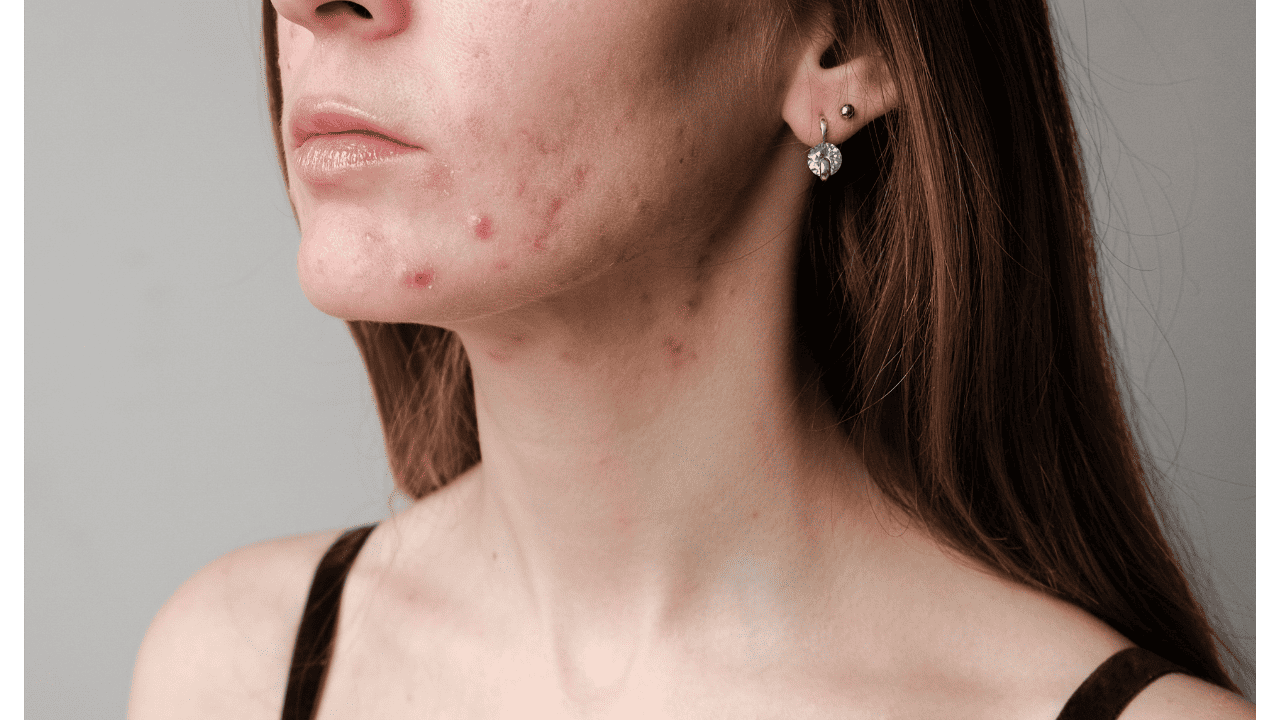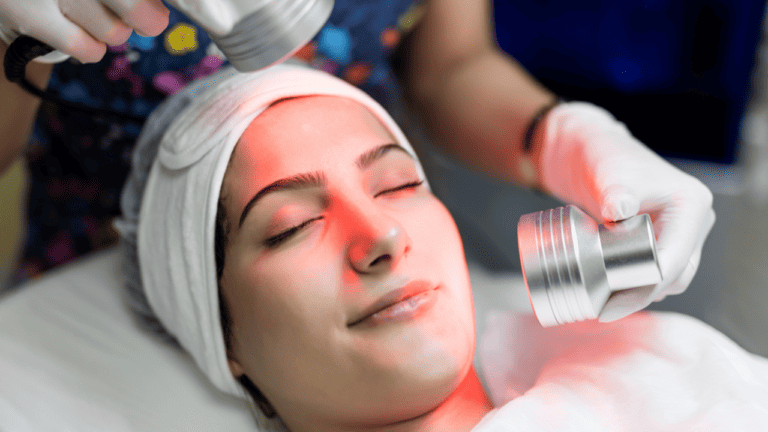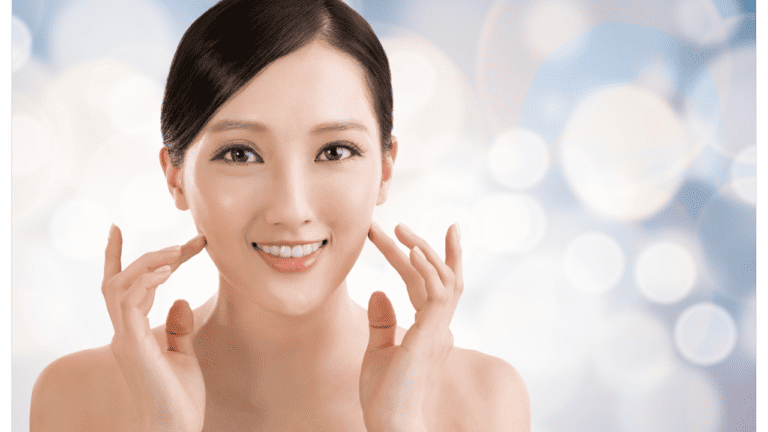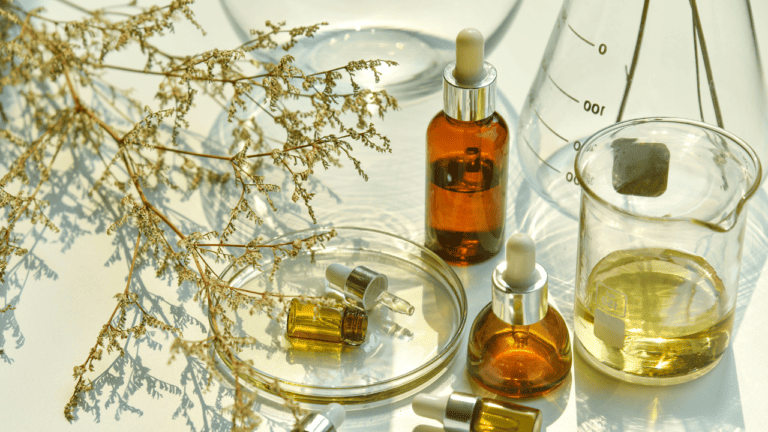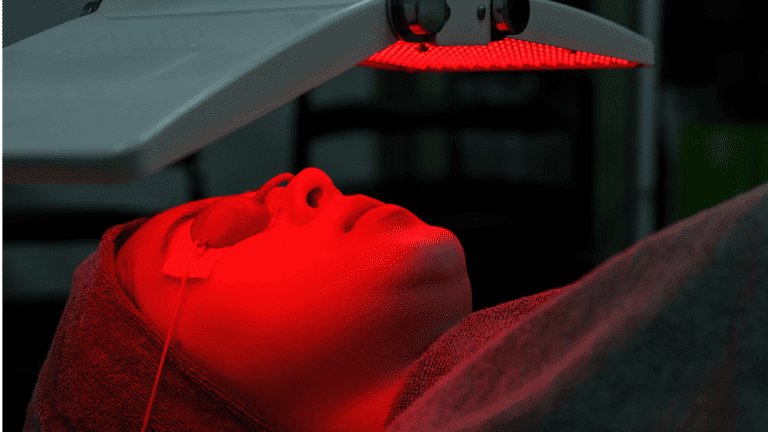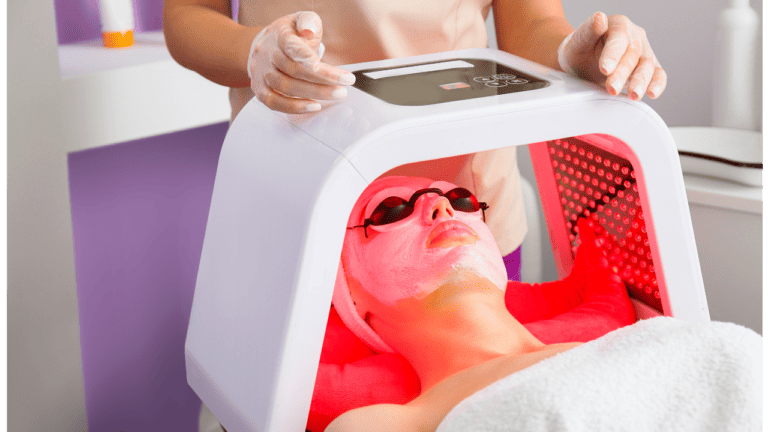Hormonal acne is a skin condition that affects people of all ages, but it is most common in teenagers and young adults. It is caused by an imbalance of hormones, particularly androgens, which can lead to increased oil production and clogged pores. Hormonal acne can be frustrating and difficult to treat, but there are a variety of skincare strategies that can help.

Skincare can be an effective way to manage hormonal acne. By using the right products and techniques, individuals can help to unclog pores, reduce inflammation, and prevent future breakouts. Some skincare strategies that may be helpful for hormonal acne include using gentle cleansers, exfoliating regularly, and using non-comedogenic moisturizers. Additionally, some products may contain ingredients like salicylic acid or benzoyl peroxide, which can help to reduce inflammation and kill acne-causing bacteria.
Key Takeaways
- Hormonal acne is caused by an imbalance of hormones, particularly androgens, which can lead to increased oil production and clogged pores.
- Skincare can be an effective way to manage hormonal acne, using the right products and techniques.
- Some skincare strategies that may be helpful for hormonal acne include using gentle cleansers, exfoliating regularly, and using non-comedogenic moisturizers.
Understanding Hormonal Acne
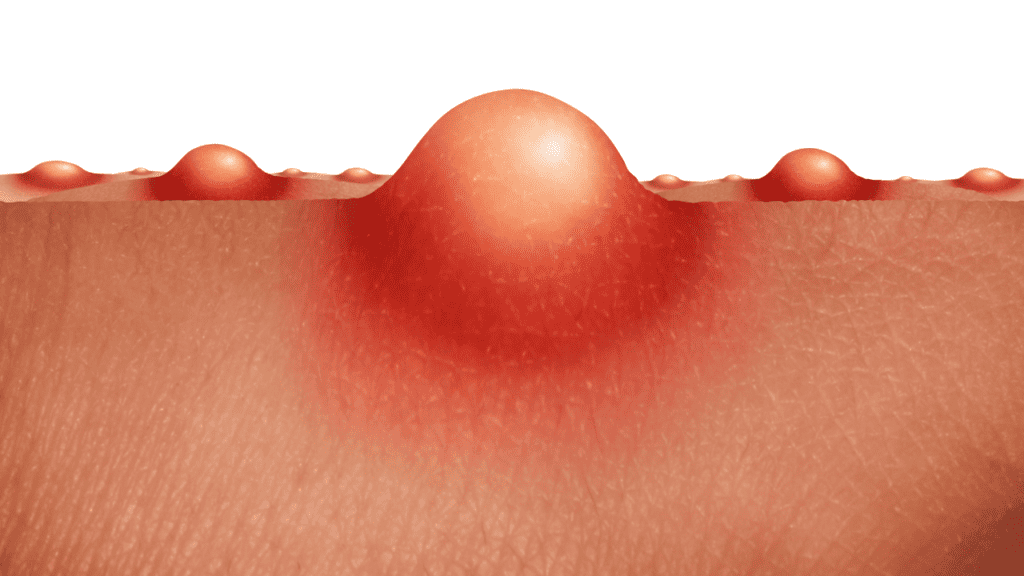
Hormonal acne is a type of acne that is primarily caused by hormonal imbalances in the body. This type of acne is more common in females and can occur at any age. Hormonal acne is often characterized by deep, painful cysts that form on the face, neck, chest, and back.
Defining Hormonal Acne
Hormonal acne is caused by an increase in androgens, which are male hormones that are present in both males and females. Androgens stimulate the sebaceous glands in the skin, causing them to produce more oil. This excess oil can clog pores, leading to the formation of acne.
Common Triggers and Causes
There are several factors that can trigger hormonal acne, including stress, menstruation, puberty, and menopause. During these times, there is an increase in the production of hormones, which can lead to an increase in oil production and acne formation.
Diet can also play a role in the development of hormonal acne. Foods that are high in sugar and dairy products can cause an increase in insulin levels, which can lead to an increase in androgen production. This increase in androgens can lead to an increase in oil production and acne formation.
It is important to note that while skincare can help manage hormonal acne, it cannot completely cure it. Hormonal acne is a medical condition that requires treatment by a dermatologist. However, maintaining a good skincare routine can help manage the symptoms of hormonal acne and prevent further breakouts.
Identifying Hormonal Acne
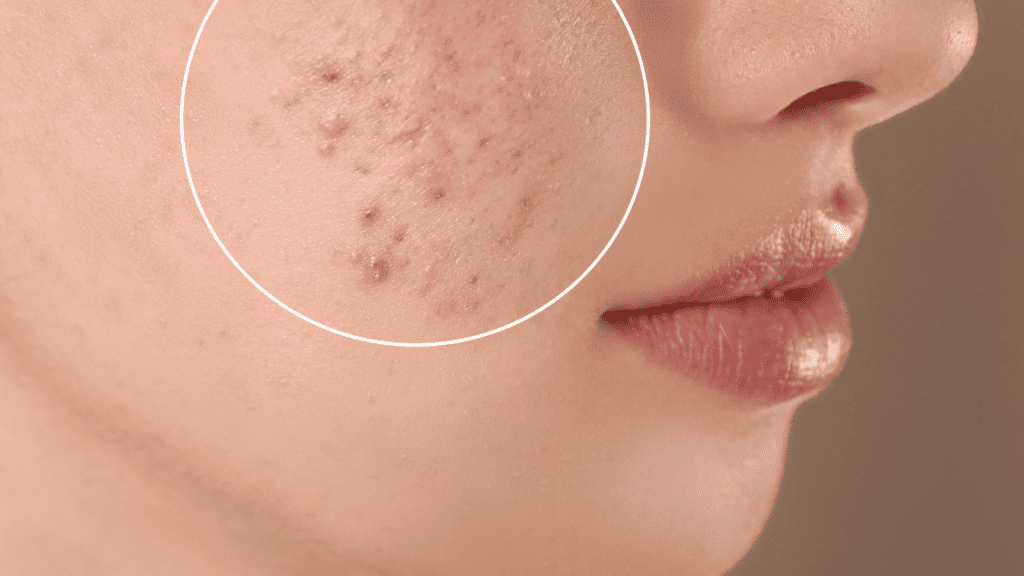
Hormonal acne is a type of acne that is caused by hormonal imbalances in the body. It is commonly seen in women during their menstrual cycle, pregnancy, and menopause. Hormonal acne is characterized by cysts, blackheads, whiteheads, and pimples that usually appear on the face, chin, cheeks, jawline, neck, and back.
Symptoms and Affected Areas
Hormonal acne typically appears as deep, painful cysts that do not come to a head. These cysts are often accompanied by blackheads, whiteheads, and pimples. Hormonal acne is commonly seen on the lower face, specifically on the chin, cheeks, and jawline. It can also appear on the neck and back.
Differences from Other Acne Types
Hormonal acne differs from other types of acne in a few key ways. Unlike other types of acne, hormonal acne is typically characterized by cysts, which are deep, painful bumps that do not come to a head. Hormonal acne is also more likely to appear on the lower face, specifically on the chin, cheeks, and jawline.
While other types of acne can be caused by a variety of factors, including genetics, diet, and stress, hormonal acne is caused by hormonal imbalances in the body. This type of acne is more common in women and is often associated with menstrual cycles, pregnancy, and menopause.
In summary, hormonal acne is a type of acne that is caused by hormonal imbalances in the body. It is characterized by cysts, blackheads, whiteheads, and pimples that typically appear on the lower face, specifically on the chin, cheeks, and jawline, as well as on the neck and back. Unlike other types of acne, hormonal acne is typically characterized by deep, painful cysts that do not come to a head.
Skin Care Strategies for Hormonal Acne

Hormonal acne is a common skin condition that affects many people, especially women. It is caused by hormonal imbalances that lead to an increase in sebum production, which clogs pores and causes breakouts. While hormonal acne can be difficult to treat, there are several skin care strategies that can help manage symptoms and prevent future breakouts.
Daily Skin Care Routine
Establishing a daily skin care routine is essential for managing hormonal acne. The routine should include cleansing, moisturizing, and protecting the skin from the sun. Cleansing the skin twice a day with a gentle cleanser can help remove excess oil, dirt, and impurities that can clog pores. It is important to avoid harsh scrubs or exfoliants that can irritate the skin and exacerbate acne.
After cleansing, it is important to moisturize the skin with a non-comedogenic moisturizer. This can help prevent dryness and irritation that can trigger acne. Additionally, using a sunscreen with an SPF of at least 30 can help protect the skin from UV damage, which can worsen acne and cause hyperpigmentation.
Recommended Products
There are several skin care products that can be helpful for managing hormonal acne. Salicylic acid is a common ingredient found in many acne treatments and can help exfoliate the skin and unclog pores. Benzoyl peroxide is another effective ingredient that can help kill acne-causing bacteria and reduce inflammation.
Retinoids are a type of topical medication that can help regulate cell turnover and reduce the appearance of acne. However, retinoids can be irritating to the skin and should be used with caution. It is important to consult with a dermatologist before using any topical medication to treat acne.
In conclusion, establishing a daily skin care routine and using recommended products can be helpful for managing hormonal acne. However, it is important to consult with a dermatologist to develop a personalized treatment plan that addresses individual needs and concerns.
Medical Treatments and Remedies

Hormonal acne can be tough to treat with skincare alone. In some cases, medical treatments may be necessary to help control the condition. Here are some of the most common medical treatments and remedies for hormonal acne.
Topical Medications
Topical medications are applied directly to the skin and can be effective in treating mild to moderate hormonal acne. Some of the most commonly used topical medications for acne include retinoids, benzoyl peroxide, and salicylic acid. These medications work by unclogging pores and reducing inflammation.
Retinoids are a type of vitamin A derivative that help to unclog pores and prevent new acne from forming. Benzoyl peroxide is an antibacterial agent that helps to kill the bacteria that cause acne. Salicylic acid is a type of beta-hydroxy acid that helps to exfoliate the skin and unclog pores.
Oral Medications
In some cases, oral medications may be necessary to help control hormonal acne. Oral medications are taken by mouth and can be effective in treating moderate to severe acne. Some of the most commonly used oral medications for acne include antibiotics, oral contraceptives, and spironolactone.
Antibiotics work by killing the bacteria that cause acne and reducing inflammation. Oral contraceptives can help to regulate hormone levels and reduce the amount of oil produced by the skin. Spironolactone is a medication that can help to reduce the amount of androgens in the body, which can contribute to hormonal acne.
Alternative Treatments
In addition to traditional medical treatments, there are also some alternative treatments that may be effective in treating hormonal acne. Tea tree oil is a natural antibacterial agent that can help to kill the bacteria that cause acne. Light therapy is a treatment that uses light to kill the bacteria that cause acne and reduce inflammation.
Antioxidants are also believed to be effective in treating hormonal acne. Antioxidants help to protect the skin from damage caused by free radicals, which can contribute to acne and other skin conditions. Some of the most commonly used antioxidants for acne include vitamin C, vitamin E, and green tea extract.
Lifestyle Considerations
Hormonal acne is often linked to lifestyle factors such as diet, stress, and exercise. Making certain lifestyle adjustments can potentially help manage hormonal acne.
Dietary Adjustments
Diet can play a significant role in the development of hormonal acne. Foods high in sugar and dairy products have been linked to acne breakouts. Reducing the intake of these foods can help manage acne. Instead, a diet rich in fruits, vegetables, and whole grains may help improve skin health.
Stress Management
Stress is a well-known trigger for acne breakouts. When the body is under stress, it produces the hormone cortisol, which can increase oil production and lead to acne. Practicing stress-management techniques such as meditation, yoga, or deep breathing can help keep cortisol levels in check and reduce the risk of breakouts.
Exercise and Hormone Regulation
Regular exercise can help regulate hormone levels and reduce the risk of hormonal acne. Exercise helps to reduce stress and improve blood circulation, which can also help improve skin health. However, it’s important to note that excessive exercise can also lead to hormonal imbalances and acne breakouts. Therefore, it’s important to find a balance and not over-exercise.
Overall, making certain lifestyle adjustments can help manage hormonal acne. By reducing sugar and dairy intake, practicing stress-management techniques, and engaging in regular exercise, individuals can potentially improve their skin health and reduce the risk of acne breakouts.
When to See a Dermatologist
While most cases of hormonal acne can be managed with over-the-counter treatments and a consistent skincare routine, there are times when it may be necessary to seek professional help from a dermatologist.
Persistent Acne and Professional Assessment
If acne persists despite the use of over-the-counter treatments, it may be time to consult a dermatologist. A dermatologist can assess the severity of the acne and determine if there are any underlying medical conditions or hormonal imbalances that may be contributing to the problem. They may also recommend prescription-strength treatments that are not available over-the-counter.
Advanced Treatment Options
In some cases, hormonal acne may require more advanced treatment options. A dermatologist may recommend oral contraceptives or anti-androgen medications to regulate hormones and reduce acne. They may also suggest isotretinoin, a powerful medication that can effectively treat severe acne but requires close monitoring due to potential side effects.
Overall, if acne is causing significant distress or interfering with daily life, it may be worth seeking the advice of a dermatologist. They can provide a professional assessment and recommend advanced treatment options that are not available over-the-counter.
Frequently Asked Questions
What are effective supplements for managing hormonal acne?
Supplements can be helpful in managing hormonal acne, but it is important to consult with a healthcare provider before starting any new supplement regimen. Zinc supplements have been shown to reduce acne severity, and omega-3 fatty acids may also be beneficial in reducing inflammation in the skin. Additionally, spearmint tea has anti-androgenic properties and may be helpful in managing hormonal acne in women.
Is benzoyl peroxide beneficial in treating hormonal acne?
Benzoyl peroxide is not specifically targeted towards hormonal acne, but it can be helpful in treating all types of acne. It works by killing the bacteria that cause acne and reducing inflammation in the skin. However, it can be drying and irritating to the skin, so it is important to start with a low concentration and gradually increase as tolerated.
What are the top treatments for hormonal acne in adults?
The top treatments for hormonal acne in adults include oral contraceptives, spironolactone, and isotretinoin. Oral contraceptives work by regulating hormone levels in the body, and spironolactone is an anti-androgenic medication that can be helpful in managing hormonal acne in women. Isotretinoin is a powerful medication that is reserved for severe cases of acne that have not responded to other treatments. It works by reducing oil production in the skin and preventing the formation of new acne lesions. However, it can have serious side effects and requires close monitoring by a healthcare provider.
